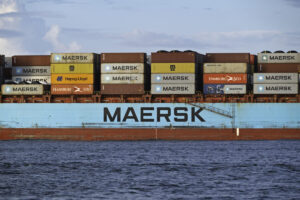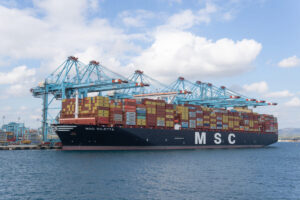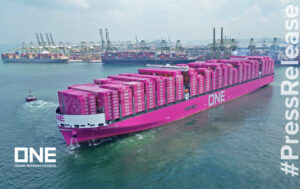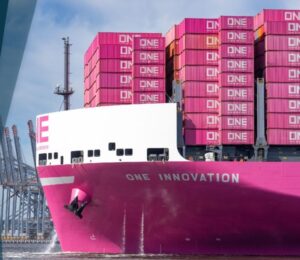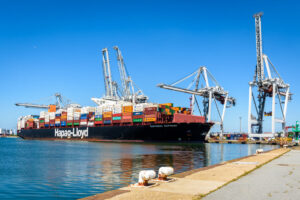The term ‘reefer’ is used in shipping to refer to refrigerated ships and refrigerated shipping containers that transport perishable commodities by sea.
Temperature-controlled transportation is used for perishables such as fruit, meat, fish, vegetables, and dairy products.
A reefer ship is a containership that exclusively carries refrigerated containers.
Exclusive Paper: Truck Appointment Systems and Reefers: Is There a Connection?
Reefer ships differ from conventional container ships in their size, design, power generation and electrical distribution equipment.
The key difference is that they are smaller and require provisions made for powering each container’s cooling system.
While refrigerated containers pose a challenge to carriers and ports, demanding high running costs and regular maintenance, the market for reefer shipping is growing at a fast rate.
In a recent technical paper, available from Port Technology, Maersk Container Industry’s Søren Leth Johannsen explained that cutting energy costs and optimizing cargo quality, using a combination of existing and emerging technologies, makes this sector valuable for maritime businesses.
A reefer typically circles the world four times under extreme handling and weather conditions. Every year. Over a typical working life of 15 years, maintenance and running costs rapidly add up. There is evidently huge potential in reducing inefficiencies and costs in reefer operations.
Relevant Stories


